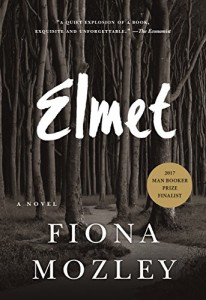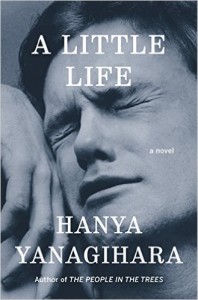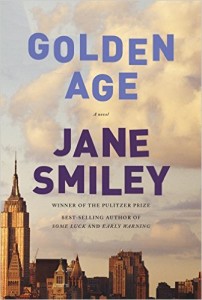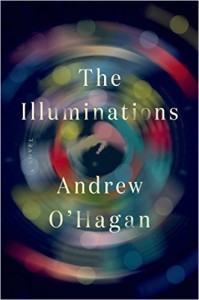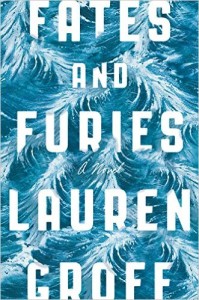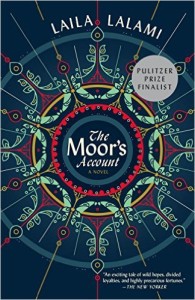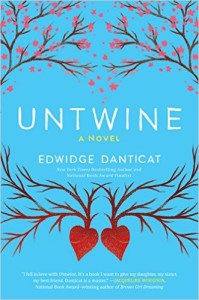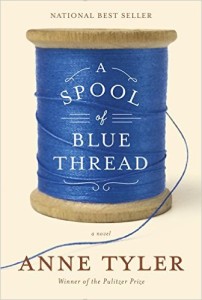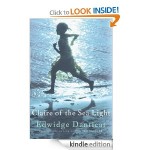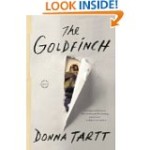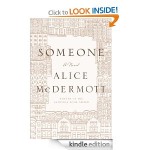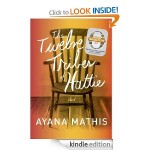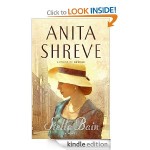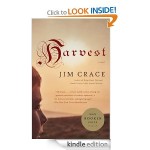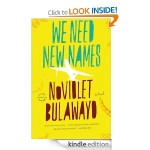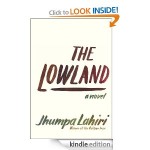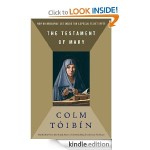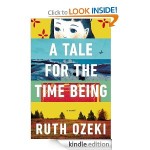With warm weather upon us, it’s time to stock up summer reading. Here is a batch of some really, really good books – not exactly light beach reads, but worth the effort. There’s some great writing here, good stories, and in some cases, timely topics. Enjoy!
Another Brooklyn, by Jacqueline Woodson ©©©
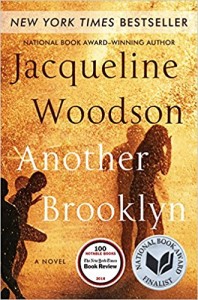 This finalist for the 2016 National Book Award is a luminous and haunting coming of age story set in the Brooklyn of the 1970’s. August and her friends are girls on the brink of adulthood, trying to figure it all out. They are tough and strong, and also painfully fragile. In their Brooklyn universe they are beautiful and special, with glorious futures await just ahead. But Brooklyn, and the world at large, are dangerous places for ambitious, trusting young girls. As life lets loose on them, their friendships are tested and their futures become far less certain. As is true for so many girls, and even more so for black girls like August and her friends, growing up comes with a cost. Life is not always kind, parents are not always protective or available, and dreams don’t always come true. Beauty and tragedy vie for the upper hand throughout the pages of this powerful novel.
This finalist for the 2016 National Book Award is a luminous and haunting coming of age story set in the Brooklyn of the 1970’s. August and her friends are girls on the brink of adulthood, trying to figure it all out. They are tough and strong, and also painfully fragile. In their Brooklyn universe they are beautiful and special, with glorious futures await just ahead. But Brooklyn, and the world at large, are dangerous places for ambitious, trusting young girls. As life lets loose on them, their friendships are tested and their futures become far less certain. As is true for so many girls, and even more so for black girls like August and her friends, growing up comes with a cost. Life is not always kind, parents are not always protective or available, and dreams don’t always come true. Beauty and tragedy vie for the upper hand throughout the pages of this powerful novel.
The Sparsholt Affair, by Alan Hollinghurst ©©©
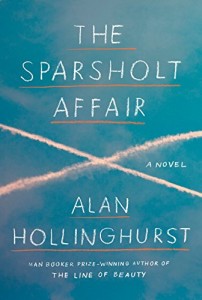 This sweeping novel takes place over seven decades and multiple generations, with a group of British gay men at its core. The changing attitudes toward homosexuality and morality is what underlies these story of intergenerational friendship, but it also about families, about fathers and sons, about desire and sexuality and secrets, and about art. And it is also about aging, and what happens to secrets and desires and needs as the characters move through their lives, from young adulthood to death, and how people react as the world changes around them.Hollinghurst’s prose is both precise and beautifully equivocating. He uses an inordinate amount of commas and qualifiers within long sentences but the result is satisfyingly human rather than tiresome or vague. He spins a web of words that draws the reader in and deposits you right inside the scene, within the elaborately described rooms or conversations.
This sweeping novel takes place over seven decades and multiple generations, with a group of British gay men at its core. The changing attitudes toward homosexuality and morality is what underlies these story of intergenerational friendship, but it also about families, about fathers and sons, about desire and sexuality and secrets, and about art. And it is also about aging, and what happens to secrets and desires and needs as the characters move through their lives, from young adulthood to death, and how people react as the world changes around them.Hollinghurst’s prose is both precise and beautifully equivocating. He uses an inordinate amount of commas and qualifiers within long sentences but the result is satisfyingly human rather than tiresome or vague. He spins a web of words that draws the reader in and deposits you right inside the scene, within the elaborately described rooms or conversations.
This finalist for the 2017 Man Booker Prize has an ephemeral feel to it, almost like a movie shot through gauze, or a fogged lens. It takes place in a forest setting, in which a father lives with his son and daughter. The fairy tale allusions are all there — an idyllic setting, a magical relationship to nature, the lack of a mother (all too common in fairy tales after all!), and the sense that danger lurks right at the edges of the light, out of view but there all the same. And so it’s disorienting to realize that the book takes place in the present, not in some faraway time. And the danger is there all right, but no spoilers here. Told after the fact by Daniel, the brother and son, mystery and tragedy are threaded through the telling that only beginning to make sense as more details become clear. Part mythical tale, part contemporary coming-of-age story, the writing in this first novel gains traction slowly, taking on more urgency as it builds.
An American Marriage, by Tayari Jones ©©©
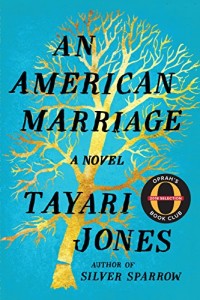 If anything could be called a novel for our times, this might be the one. Jones has written an explosively powerful book about a man, Roy, whose life is turned upside down in an instant one night. Roy and his new wife Celestial are staying at a motel when Roy is accused of a crime, and nothing is the same after that. This is a story of America, where the simple fact of breathing while black is dangerous, where a young man who has done everything he can to get ahead in life can suddenly have everything, including the woman he loves, stripped away from him, and where racism has a cascading effect on families and communities regardless of class and level of education. Jones’ writing is taut and careful. Anger simmers under the surface of the narrative but she keeps tight control of the language, even when the characters themselves reach a boiling point.
If anything could be called a novel for our times, this might be the one. Jones has written an explosively powerful book about a man, Roy, whose life is turned upside down in an instant one night. Roy and his new wife Celestial are staying at a motel when Roy is accused of a crime, and nothing is the same after that. This is a story of America, where the simple fact of breathing while black is dangerous, where a young man who has done everything he can to get ahead in life can suddenly have everything, including the woman he loves, stripped away from him, and where racism has a cascading effect on families and communities regardless of class and level of education. Jones’ writing is taut and careful. Anger simmers under the surface of the narrative but she keeps tight control of the language, even when the characters themselves reach a boiling point.
My Absolute Darling, by Gabriel Tallent ©©
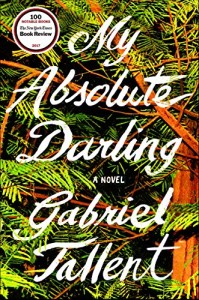 This heartbreaking, painful book had me literally covering my eyes at moments as I read it, as if I was watching a movie and couldn’t bear to see what was happening on the screen. Of course that makes no sense when reading a book, but I was so caught up in the story that it felt as if it was unfolding right in front me and I both couldn’t look, and couldn’t look away. Turtle Alveston is a young teenager as the story unfolds. She lives alone with her father, not far from a caring grandfather, in a house in the woods of Northern California that has fallen into disrepair since the death of her mother. Her father takes pride in teaching her how to be self-sufficient, how to use a gun, and how fend for herself. He teaches her to be mistrustful of other people, especially women, and abandons her for periods of time. He is effusive in his love for her, but he is a mercurial and dangerous character who violently abuses even as he declares his devotion. When Turtle forms a friendship with a boy her own age, her father does all he can to put a stop to it. In the end, Turtle uses the skills she has learned under her father’s tutelage, as well as her own anger and desire to survive, to triumph over victimhood. The lush and lengthy descriptions of nature, the paragraphs upon paragraphs of local foliage and seascapes, is achingly gorgeous, especially when contrasted with the equally comprehensive details of violence and abuse. This novel shares some things in common with the equally painful A Little Life by Hanya Yanagihara, in that both books deal with incredible abuse both physical and sexual, and the suffering of the young people upon whom this is cruelty is inflicted – if you had a hard time with that book you might want to think twice about this one. But still, despite all that, if you can manage it, this is well worth a read. And this book, unlike Yanagihara’s, offers up the possibly of redemption.
This heartbreaking, painful book had me literally covering my eyes at moments as I read it, as if I was watching a movie and couldn’t bear to see what was happening on the screen. Of course that makes no sense when reading a book, but I was so caught up in the story that it felt as if it was unfolding right in front me and I both couldn’t look, and couldn’t look away. Turtle Alveston is a young teenager as the story unfolds. She lives alone with her father, not far from a caring grandfather, in a house in the woods of Northern California that has fallen into disrepair since the death of her mother. Her father takes pride in teaching her how to be self-sufficient, how to use a gun, and how fend for herself. He teaches her to be mistrustful of other people, especially women, and abandons her for periods of time. He is effusive in his love for her, but he is a mercurial and dangerous character who violently abuses even as he declares his devotion. When Turtle forms a friendship with a boy her own age, her father does all he can to put a stop to it. In the end, Turtle uses the skills she has learned under her father’s tutelage, as well as her own anger and desire to survive, to triumph over victimhood. The lush and lengthy descriptions of nature, the paragraphs upon paragraphs of local foliage and seascapes, is achingly gorgeous, especially when contrasted with the equally comprehensive details of violence and abuse. This novel shares some things in common with the equally painful A Little Life by Hanya Yanagihara, in that both books deal with incredible abuse both physical and sexual, and the suffering of the young people upon whom this is cruelty is inflicted – if you had a hard time with that book you might want to think twice about this one. But still, despite all that, if you can manage it, this is well worth a read. And this book, unlike Yanagihara’s, offers up the possibly of redemption.
Rating System
©©© – Amazing Book, dazzling, blew me away
©© – Great Book, deeply satisfying
© – Good Book, but I wanted it to be even better

